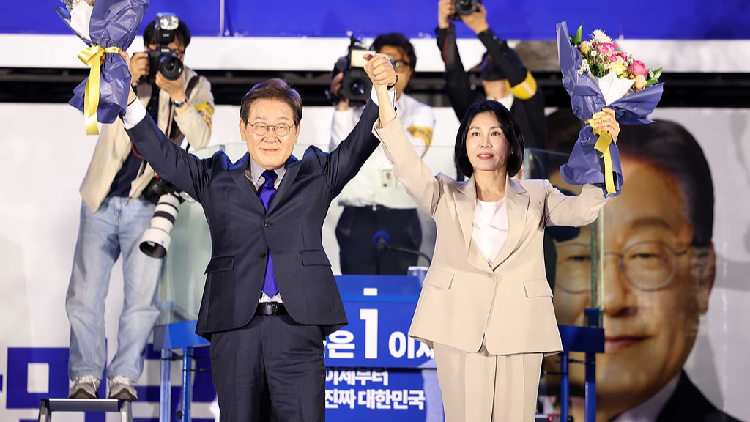Lee Jae-myung Officially Inaugurated as South Korea's New President
South Korea's new liberal President Lee Jae-myung officially took office on Wednesday, promising reform and change.

South Korea entered a new chapter on Wednesday as Lee Jae-myung was sworn in as president, pledging to guide the nation out of political upheaval following months of martial law, and to revitalize an economy facing both domestic challenges and foreign trade disputes.
The liberal candidate, a 61-year-old former human rights lawyer, secured a decisive victory, capturing 49.42 percent of the nearly 35 million ballots cast in Tuesday's high-turnout election. His main rival, conservative Kim Moon-soo, garnered 41.15 percent, reflecting intense national interest after the country's recent political crisis. The record turnout underscores the public’s desire for stability and a new direction after what Lee described as "judgment day" over the actions of his predecessor, Yoon Suk-yeol.
Addressing thousands outside parliament shortly after his confirmation, President Lee wasted no time in declaring his administration's top priority: ending the cycle of insurrection and ensuring that "there will never be another military coup with guns and swords turned against the people." Lee emphasized South Korea’s resilience, stating, "We can overcome this temporary difficulty with the combined strength of our people, who have great capabilities."
With his confirmation by the National Election Commission, Lee immediately assumed full presidential powers and the role of commander in chief. The transition was marked by an abbreviated inauguration ceremony at parliament, symbolizing the urgency and gravity of the nation's situation.
Economic hardship stands at the forefront of Lee's agenda. He has vowed to address pressing issues impacting millions of South Koreans, particularly middle and low-income households hit by rising living costs, and small business owners struggling in a slowing economy. Lee’s administration is expected to act swiftly, focusing government resources on alleviating cost-of-living pressures and supporting industries at risk from global market volatility.
Among the most critical international challenges is a deadline imposed by the White House to resolve contentious import duties. These tariffs, introduced by the U.S. government, threaten some of South Korea’s largest export sectors, including autos and steel, and have yet to be resolved by the previous acting administration. Industry analysts warn the new president will have scant time to negotiate an agreement with Washington that protects South Korean interests while maintaining vital trade ties.
In his congratulatory message, U.S. Secretary of State Marco Rubio reaffirmed the strength of the relationship between the two nations, calling their alliance "ironclad" and rooted in mutual defense and deep economic bonds. He stressed ongoing efforts to modernize the partnership to address both evolving security threats and shared economic obstacles.
Lee, who has repeatedly declared that the U.S.-South Korea alliance is the backbone of the country's foreign policy, will now be tasked with rebuilding international confidence after months of instability. The martial law decree and subsequent turmoil led to three acting presidents and headline-grabbing insurrection trials—an unprecedented episode that badly disrupted political continuity and economic growth.
As Lee Jae-myung and his wife Kim Hye-kyung celebrated at the National Assembly, hopes were high that his presidency would mark a return to stability, democratic governance, and renewed prosperity for South Korea.




